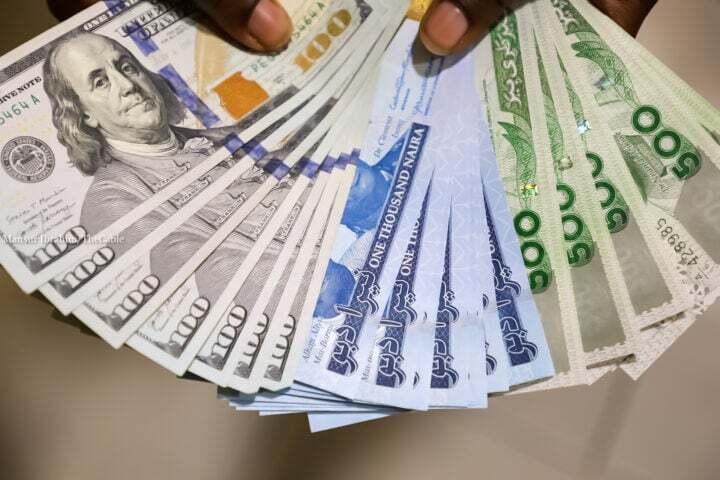
Naira Crashes Again: Black Market Rate Hits ₦1,571 – March 24, 2025
The Nigerian Naira continues to experience fluctuations against the US Dollar in the black market, reflecting ongoing economic challenges.
As of today, Monday, March 24, 2025, reports from local currency traders, commonly known as Aboki in Nigeria, indicate that the parallel market exchange rate for 1 US Dollar (USD) to Nigerian Naira (NGN) stands at approximately ₦1,571.
Trending Now!!:
Data from currency dealers in Lagos suggests that the buying rate for the US Dollar hovers around ₦1,565, while the selling rate ranges between ₦1,575 and ₦1,580, depending on the location and trader. This represents a slight shift from weekend rates, underscoring the volatility of the parallel forex market.
The black market, or parallel market, remains a crucial channel for currency exchange in Nigeria due to restricted access to forex through official banking systems. Despite ongoing efforts by the Central Bank of Nigeria (CBN) to stabilize the Naira through monetary policies and interventions, demand for the US Dollar continues to exceed supply. This imbalance drives individuals and businesses toward Aboki traders, contributing to market instability.
The CBN has implemented various measures to curb forex speculation and support the Naira, including forex market interventions by selling dollars to commercial banks to enhance liquidity and stabilize the official exchange rate. The bank has also restricted forex allocations to Bureau De Change (BDC) operators to reduce black market reliance.
Interest rate adjustments are another strategy, as raising interest rates can attract foreign investment and reduce inflationary pressures. Additionally, export promotion strategies encouraging non-oil exports aim to boost forex earnings in the long term. However, despite these interventions, the gap between the official and black market rates persists, with many Nigerians turning to the parallel market for immediate forex needs.
Oil prices play a critical role in determining Nigeria’s forex reserves, as crude oil exports account for the majority of the country’s dollar earnings. When global oil prices decline, forex inflows reduce, weakening the Naira. Conversely, higher oil prices can bolster Nigeria’s foreign reserves and improve currency stability.
Financial analysts note that today’s rate reflects a slight appreciation of the Naira compared to earlier this month when it surpassed ₦1,590 per dollar. However, traders remain cautious, warning that any stability could be short-lived without significant policy changes or increased forex inflows. Musa Ibrahim, a currency dealer at Lagos’ Zone 4 market, remarked, “The market is unpredictable. People are holding onto dollars because they don’t trust the official system, and that keeps pushing the price up.”
The gap between the official CBN rate and the black market remains a concern, as the CBN discourages reliance on parallel forex markets. Nonetheless, many Nigerians continue to engage with Aboki traders due to the convenience and accessibility of forex.
As the day progresses, exchange rates may fluctuate further based on supply and demand dynamics. Individuals are encouraged to monitor reliable financial platforms or consult reputable currency dealers for the latest updates.


